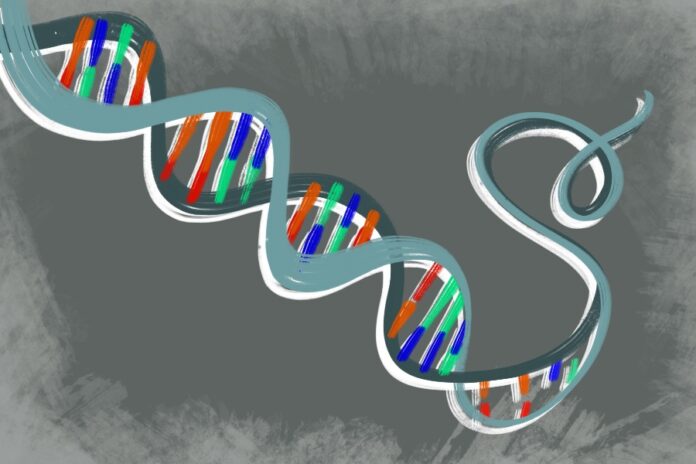Telemedicine robots allow for genetic consultations around the clock virtually
Now more than ever, telemedicine has been the epitome of health care since the pandemic struck. Fears surrounding the coronavirus and inconvenient commutes have made an in-person visit to the doctor unappealing. However, long before the pandemic, UC Davis Health entered a partnership with Dignity Health Mercy San Juan Medical Center in Carmichael, working together on telemedicine to enhance accessibility to all patients.
Dr. Katherine Rauen, emeritus in the Division of Genomic Medicine and a professor in the Department of Pediatrics at UC Davis Health, explained the significance of TeleGenomics and why UC Davis is at the forefront of telemedicine.
“UC Davis has a really big catchment, meaning that the patients that we see go all the way up to the Oregon border, go all the way inland, and we actually have a lot of patients from Reno and Nevada,” Rauen said. “And our catchment goes all the way down through the central Valley. So geographically, we have a huge catchment and there are a lot of patients that the drive is very long for them; they may not have the transportation that they need to get to the UC Davis Medical Center and so telemedicine was the answer and it still is the answer.”
Despite the field of genomic medicine being housed under the Department of Pediatrics, Rauen further explained why this field actually extends beyond just pediatric patients.
“We transcend all age groups, so even though we’re housed within the Department of Pediatrics, we see newborn children to adults in their 70s or 80s, or whoever wants to come and see us,” Rauen said. “Genomic medicine is a family affair. And what impacts you genetically impacts other family members, it could potentially impact other family members as well. We are a product of our genes, and our genes come from the previous generation, so it makes us who we are.”
The field’s wide encompassing range of patients and UC Davis’ large catchment led to the development and usage of state-of-the-art telemedicine robots. These robots equipped with high resolution cameras allow UC Davis genetics specialists to conduct virtual yet thorough examinations for patients all the way at the Dignity Health Mercy San Juan Medical Center around the clock.
“There have been several studies that have been done that show that, yes, this is a robust way to see patients because the robots have gotten so advanced that I can see freckles and moles on somebody’s skin; I can see the palmar creases on the patient,” Rauen said.
Many patients call in for a variety of reasons regarding a genomic medicine issue. This is where these telemedicine robots that have made healthcare accessible to patients distant from UC Davis Medical Center around the clock come in.
“The consultations are requested for a variety of reasons. For example, when a child born at Methodist Hospital or Mercy San Juan has multiple congenital anomalies, such as heart or skeletal defects, isn’t eating properly, or has features that are consistent with Down syndrome,” according to a recent UC Davis Health press release.
Dr. Joseph Shen, a clinical geneticist trained in molecular biology and molecular genetics at the UC Davis Medical Center, described how the pandemic had affected TeleGenomics for both physicians and patients.
“Some technologies can be slow to adopt or people are old school and don’t want to change and things like that, but I think that [the pandemic] really accelerated it forward to use it more and more,” Shen said. “From a practical standpoint, when doing a genetics evaluation, we are very thorough with how we’re examining the body; we’re looking for little physical clues up and down, [which] is best served if you’re doing that in person. But I’ve seen run-throughs with these robot systems with the intricate amount of detail that we’re able to zoom in on as if we were doing these examinations in-person.”
With telemedicine shaping the health field, there were inevitably doubts of how a virtual visit lacks the same effectiveness compared to an in-person visit. However, Rauen described how in the past few years, these robots have facilitated genomic consultations virtually with just as much value as in-person consultations.
“We have gotten very positive feedback on [telemedicine robots], and it was just like we were right there talking with them, so it makes a huge difference to have a face-to-face interaction, and they looked at it as if it were face-to-face,” Rauen said. “It does feel on our end as though we were present with the family. So to me, having done this a couple of decades and looking back on it, it’s like I really was there at the bedside.”
Written by: Brandon Nguyen – science@theaggie.org







